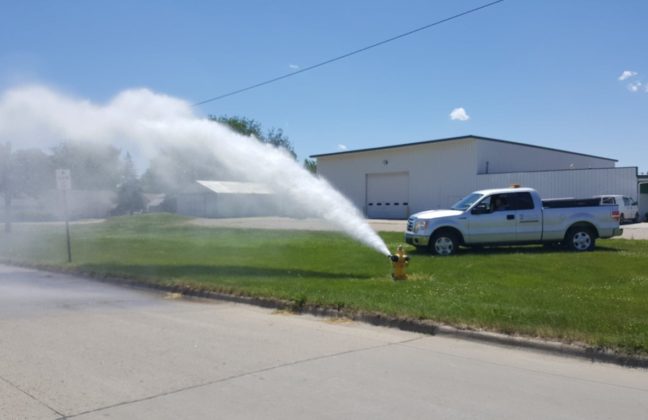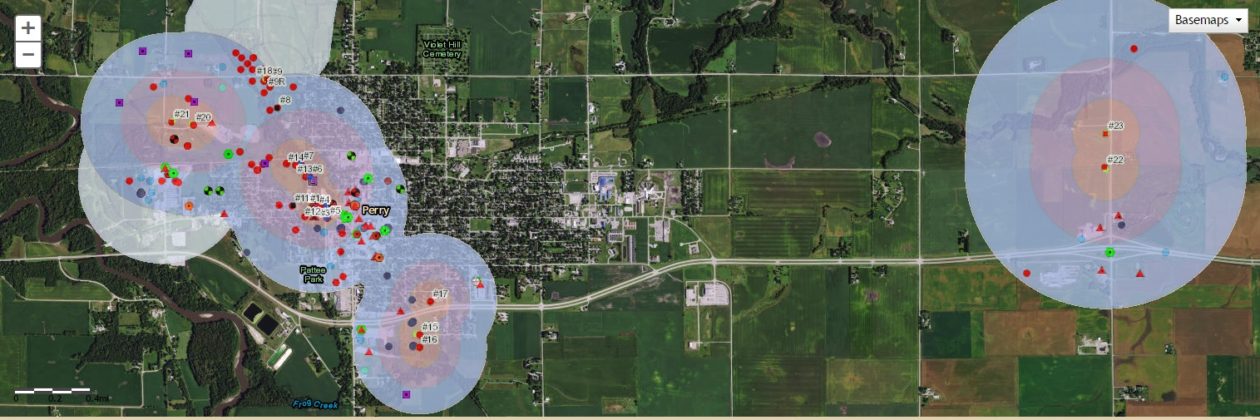The Perry Water Works is currently discharging water via fire hydrants in some locations around Perry in order to flush the distribution system of nitrogen, a chemical element that can build up to toxic levels in the water system in the forms of ammonia, nitrate and nitrite.
The trustees of the Perry Water Works voted Thursday to enter into a professional engineering services agreement with the engineering firm of Veenstra and Kimm, whom they tasked with designing a nitrate-removal system for Perry’s water treatment plant.
Nitrogen enters Perry’s shallow groundwater wells in part as a result of chemical-intensive agricultural practices involving the application of chemical fertilizers and animal manure. The nitrogen decomposes in the soil to give ammonia, which is then oxidized to nitrite and nitrate. All three forms easily leach from the soil into the groundwater.
Water quality monitoring shows that nitrate is present in groundwater throughout much of Iowa. The nitrate-nitrogen concentration sometimes exceeds the U.S. Environmental Protection Agency (EPA) drinking-water limit of 10 mg/L, and the nitrite-nitrogen sometimes exceeds the stricter EPA maximum contaminant level of 1 mg/L.
According to the Perry Water Works 2018 Consumer Confidence Report:
The Perry water supply obtains a portion of its water from the sand and gravel of the North Raccoon River alluvial aquifer and a portion of its water from the sand and gravel of the Pleistocene aquifer. The alluvial aquifer was determined to be highly susceptible to contamination because the characteristics of the aquifer and overlying material provide little protection from contamination at the land surface. The Pleistocene aquifer was determined to be slightly susceptible to contamination because the characteristics of the aquifer and overlying material provide moderate protection from contaminants at the land surface. Perry’s alluvial wells will be highly susceptible to surface contamination such as leaking underground storage tanks, contaminant spills, and excess fertilizer application. The Pleistocene wells will be slightly susceptible to surface contamination such as leaking underground storage tanks, contaminant spills, and excess fertilizer application.
For more information, call the Perry Water Works at 515-465-2562.




















